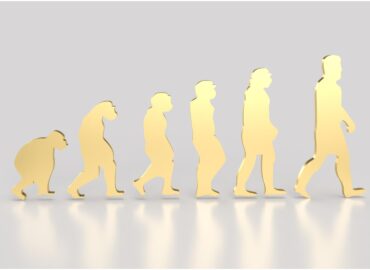10 Competency Framework Models to Build a Future-Ready Workforce
How to Build a Future-Ready Workforce with Competency Framework Models?
In today’s fast-changing world, businesses must stay ahead of the curve to remain competitive. The key? A competency framework models that ensures your workforce is equipped with the right skills, knowledge, and behaviors to thrive.
Think of it as a roadmap that helps your employees grow while aligning their development with your company’s long-term goals. With the right competency framework model, you can build a future-ready workforce that’s adaptable, innovative, and high-performing.
What is a Competency Framework Models?
A competency framework models is a structured system that defines the core skills and abilities employees need to perform well in their roles. It serves as a foundation for everything from hiring and training to performance management and career development.
By clearly outlining expectations, a well-crafted competency framework ensures consistency across your organization, helping employees understand what success looks like in their specific roles.
Why Competency Framework Models Matter?
Integrating a competency framework models into your workforce strategy isn’t just a trend—it’s a game-changer. Here’s why:
- Better Hiring Decisions
Clearly defined competencies help you identify the best-fit candidates. - Improved Employee Performance
Employees know what’s expected of them and can work towards clear goals. - Targeted Training & Development
Training programs can be tailored to develop critical skills. - Stronger Leadership Pipeline
Helps identify and groom future leaders within your organization. - Increased Employee Engagement
Employees feel more motivated when they see a clear path for growth.
Now, let’s dive into 10 powerful competency framework models that can help future-proof your workforce.
10 Competency Framework Models for a Future-Ready Workforce
1. Leadership Competency Framework Model
Strong leadership is crucial for business success. This model focuses on developing key leadership qualities at every level.
Key competencies: Strategic thinking, decision-making, emotional intelligence, resilience.
Stat: Companies with strong leadership development programs are 1.5x more likely to be high-performing. (Deloitte)
2. Digital Transformation Competency Framework Model
With industries shifting towards digital solutions, employees must develop tech-savvy skills to stay relevant.
Key competencies: Digital literacy, innovation, adaptability, data-driven decision-making.
Stat: Businesses investing in digital talent are 2.5x more likely to report significant performance improvements. (McKinsey & Company)
3. Customer Service Competency Framework Model
Great customer service drives brand loyalty and business growth. This model ensures your team delivers exceptional customer experiences.
Key competencies: Active listening, problem-solving, empathy, communication.
Stat: Companies that prioritize customer experience achieve 60% higher profits than competitors. (PwC)
4. Innovation Competency Framework Model
A company that fosters innovation stays ahead of the competition. This model helps create a culture of creativity and bold thinking.
Key competencies: Creative problem-solving, risk-taking, collaboration, critical thinking.
Stat: Innovative companies grow 3.6x faster than the market average. (Boston Consulting Group)
5. Project Management Competency Framework Model
Effective project management ensures tasks are completed on time and within budget.
Key competencies: Planning, time management, stakeholder communication, resource allocation.
Stat: Organizations with mature project management practices complete 89% of their projects successfully. (PMI)
6. Diversity & Inclusion Competency Framework Model
A diverse and inclusive workplace leads to better decision-making and innovation.
Key competencies: Cultural intelligence, bias awareness, inclusive leadership, empathy.
Stat: Companies with diverse executive teams are 33% more likely to outperform their peers on profitability. (McKinsey & Company)
7. Technical Skills Competency Framework Model
In tech-heavy industries, employees need up-to-date technical skills to remain competitive.
Key competencies: Industry-specific expertise, continuous learning, troubleshooting, data analysis.
Stat: By 2025, 50% of all employees will need reskilling due to technological advancements. (World Economic Forum)
8. Sales Competency Framework Model
A strong sales team directly impacts revenue growth. This model ensures your salespeople have the skills to close deals effectively.
Key competencies: Negotiation, relationship-building, market analysis, persuasion.
Stat: Top sales performers are 2.8x more effective at qualifying leads than their peers. (HubSpot)
9. Communication Competency Framework Model
Clear and effective communication enhances teamwork and productivity.
Key competencies: Active listening, persuasion, public speaking, written communication.
Stat: Companies with strong communication strategies see 47% higher total returns to shareholders. (Holmes Report)
10. Agility & Adaptability Competency Framework Model
In today’s unpredictable world, employees must be flexible and quick to adapt.
Key competencies: Resilience, continuous learning, change management, emotional intelligence.
Stat: Agile organizations are 70% more likely to rank in the top quartile of organizational health. (Harvard Business Review)
How to Implement a Competency Framework Model in Your Organization?
Adopting a competency framework model doesn’t have to be overwhelming. Here’s a simple step-by-step approach:
- Identify Business Needs – Which competencies are most critical to your success?
- Engage Key Stakeholders – Involve leadership, HR, and employees in the process.
- Define Competency Levels – Clearly outline what each competency looks like at different job levels.
- Integrate into HR Processes – Align competencies with hiring, performance reviews, and training.
- Provide Training & Support – Offer resources to help employees develop key skills.
- Measure & Adjust – Regularly review and refine your competency framework to keep it relevant.
Building a future-ready workforce isn’t just about hiring top talent—it’s about equipping your employees with the right skills and mindset to thrive in a constantly evolving world.
By implementing the right competency framework model, you can create a high-performing, agile, and engaged workforce that’s prepared for the challenges of tomorrow.



